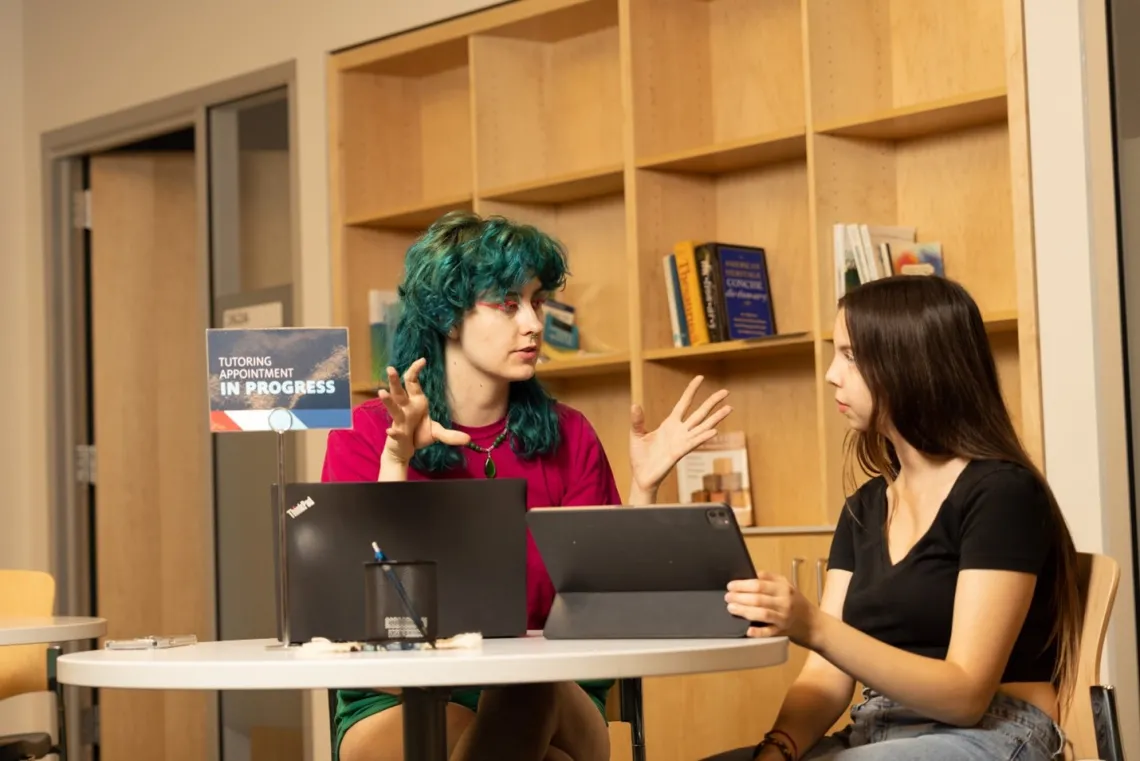Academic Support & Tutoring

It is always recommended to take advantage of campus resources that are here, especially when already included in tuition! Students coming in to take college-level classes for the first time often have pre-conceived notions about tutoring and asking for help that don’t align with their previous academic identities. We encourage students to shift to a growth mindset that will allow themselves to explore gaps in their knowledge. This is how we become better students and more successful professionals. When students open their minds to these opportunities in front of them, they leave very little room for failure along the way and find the most satisfaction in their education.
The ThinkTank, offered through the Thrive Center, is the University of Arizona’s main hub for academic support. They offer drop-in tutoring in a wide variety of subjects, individual tutoring, supplemental instruction, and different kinds of workshops that can help students with time management all the way to GRE and MCAT prep. While most basic services will always be free to students, some of more private or professional-based workshops will have student-friendly fees associated. Students can schedule private one-on-one tutoring for $35 a session or private group tutoring for $20 per person. This is a great way to connect with classmates and get individualized hands-on help. Free drop-in tutoring is available for most math, science, business, statistics, and languages. There is also a writing center to help students with communication, citation formatting, grammar, and more in any class, including but not limited to foundation English classes that are required for all degrees.
Supplemental instruction (SI) is a service that some courses provide where previous students who have already taken and succeeded in the class will assist the instructor for the entire semester. They will attend class with current students, help with in-class activities and host office hours or study sessions that are specific to the instructor’s material. They are thought of as undergraduate Teaching Assistants and have similar roles. These SI’s are hired through the ThinkTank and coordinate their hours with them. This is especially great for students who feel intimidated to ask instructors directly for help and can help them ease into asking for more help.
If your student is struggling or wants to be proactive about their education, all they need is their CatCard! While most services are free, any fee-based supports can be charged to their Bursar’s account as well, making academic support as accessible as possible for them. If you think your student may benefit from more individualized, intensive, or generic help, please have them connect with their Academic Advisor to discuss all academic/support services on campus (see some highlighted below) and which one may be best suited for their needs!
- SALT Center – Structured academic support and tutoring catered to neurodiverse learners with moderate attention challenges.
- DRC (Disability Resource Center) – Provides accommodations and works towards a universally designed campus for access to all.
- Cultural Centers – Builds cohesion and celebrates different sets of identities in embracing our diverse campus. Each center has varying services in place for participating students.
- Student Engagement & Career Development (SECD) – Encourages and teaches professional development across all stages of education and creates the most employable students with the confidence to achieve their professional goals.
- Be sure to check out the Thrive Center’s Family Resources Page, as well!

